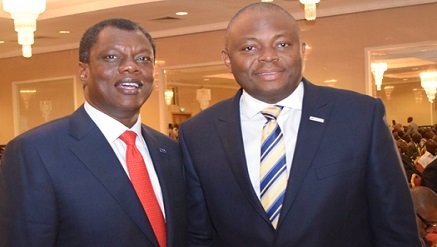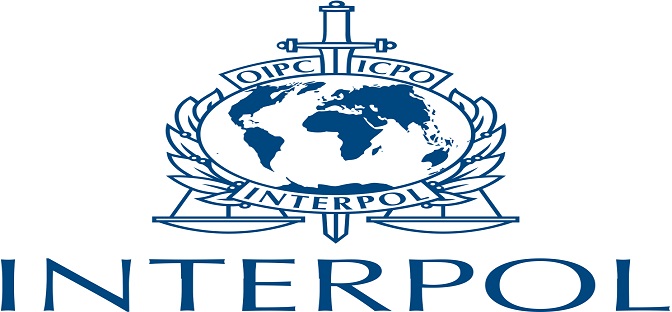News
Okere Charges Entrepreneurs on 3 Powers for Success in Business

Austin Okere, founder and Chief Executive Officer, Computer Warehouse Group Plc, has charged Small and Medium business owners to ensure that their business visions are driven by the “3 Powers of success”. This, he said, includes the Way power, the Will power and the Wait Power.
He made this known in a panel discussion, with the theme “Leveraging Technology for SME Growth”, at the maiden edition of the Annual Fidelity SMEs conference that was held in Lagos.
The panel featured outstanding entrepreneurs in the ICT sector of the country, including Chief Leo Stan Ekeh, founder of Zinox Technologies; Mr. Nicolas Martin, CEO and co- founder of Jumia ; Mr. Charles Anudu, CEO, SWIFT Networks; Mr. Bankole Cardoso, Founder Easy Taxi; Mr. Opeyemi Awoyemi, Co-Founder Jobberman and Mrs. Funke Opeke, CEO of Main One.
According to Okere, “The three powers are secrets that will keep every entrepreneur going”. He explained further that “Will power is the competence you possess to run your business. The knowledge of how to run the enterprise you want to venture into”.
“Many people will start a business, create solutions then go about looking for the problems. And when people don’t buy it, they become disappointed. You first ought to be finding out peoples’ problems and pain points then create solutions that ameliorate the pain. This is the best way to ensure patronage.” He added.
The will power, according to Mr. Okere is “the resolve to keep going when everyone say give up”.
“Sometimes people close to you will advise you to dump your venture and seek a proper job. But, what should keep you going at such times is your passion. It is the passion of a footballer that makes him complain when he is benched, despite the fact that he will still receive his pay at the end of the day. Your will power makes you go the extra mile, while your passion makes you persist in your venture while waiting for pay day.” He explained.
“Most businesses fail because the proprietors abandon them as soon as they face challenges, because it is not yielding as much as they want. After you have put so much effort into your business, you need to patiently wait for the benefits that will accrue from it. This is the essence of the third power; the wait power, which takes you eventually to light at the end of a dark tunnel.” He concluded.
Speaking on how SMEs can leverage on technology to maximize results, Okere encouraged merchants to explore the opportunities that the CWG 2.0 platform affords.
According to him, “SMERP and Openshopen platforms are designed to meet the peculiar needs of SMEs in Nigeria. Openshopen will give you the visibility your business requires to thrive in this age where businesses are going online, while SMERP will take care of your accounting and generate the records banks like Fidelity will require from you to access loans”.
“Beyond that, they are reliable and affordable, and are available on a subscription basis.” He noted.
According to Okere, the essence of developing the CWG2.0 platform is to democratize the technology that companies such as Jumia and Konga have erstwhile used exclusively to great advantage, and make them available to the over 17.7m MSMEs in Nigeria.
“Seeing the value that this platform shall bring to the SME’s in the country, SMEDAN recently signed an MOU with CWG Plc culminating in a partnership that will address the technology needs of the sector.” Austin concluded.
Nnamdi Okonkwo, managing director, Fidelity Bank Plc, in his opening speech maintained that the bank’s commitment to building Nigerian entrepreneurs is one of its core business focuses.
“We have gathered here today to deliberate on the challenges faced by SMEs in Nigeria and proffer solutions that would guide entrepreneurs to build sustainable businesses.” He explained.
“Our goal is to produce more successful businessmen like Alhaji Aliko Dangote from our entrepreneurs that are in SME category for now. We have watched Dangote transform from a merchant who went into manufacturing and later transformed into an owner of a multinational conglomerate.” He added.
At the end of the conference, Mr. Okere was given a Distinguished Partner Award for his role in the building of Nigerian entrepreneurs by Fidelity Bank plc. In a commemorative statement, the bank appreciated Mr. Okere for sharing his ideas on the panel. “We have continued to receive excellent feedbacks from the audience who are inspired by the insights and knowledge you shared.” It explained.
News
ABoICT Lecture 2026 to Focus on Impact of AI, IoT on Business Operational Efficiency

Board and management of Communication Week Media Limited, publishers of Nigeria CommunicationsWeek, at the weekend announced that this year’s Africa’s Beacon of ICT Merit and Leadership lecture will focus on Impact of AI and IoT on business operational efficiency.

Africa’s Beacon of ICT Merit and Leadership lecture, widely regarded as the most prestigious annual event available in the ICT industry in Nigeria is in its 17th year.
The lecture holds on May 30, 2026 at Oriental Hotel Lekki, Lagos, according Ken Nwogbo, editor-in-chief of
Nigeria CommunicationsWeek the organizers of the event.
He said that this year’s event “is digital transformation edition” to recognise and celebrate organizations and individuals in the ICT industry that have impacted in digital transformation of the economy.
“Most of these organizations and individuals have consistently being voted by our readers as leaders in their areas of operations and we have decided to reward them in this special edition, tag: ‘Digital Transformation Edition 2026’ he said,”.
He added that, Digital transformation, driven by AI and IoT, will fundamentally boosts business operational efficiency by automating complex tasks, enabling real-time data analysis, and reducing costs.
“IoT technology optimizes resources, predict maintenance needs, and enhance decision- making, allowing companies to streamline workflows and improve productivity across sectors like manufacturing and logistics.
“It is an emerging technology that has impacted lifestyles and has changed the way we think and act, and the way we interact with each other.
It has also changed the way we work as it enables very large-scale monitoring, control, and automation, and has impacted the digital transformation of organizations in different industries”, he said.
According to him, “the transformative power of Artificial Intelligence exists as a bringing force in organizational communication. AI tools perform repetitive jobs, deliver simultaneous translations, and register team communication patterns, which lead to better understanding of group interactions. AI chatbots help manage customer support inquiries thus enabling staff members to dedicate their efforts toward complex work activities”.
The Africa’s Beacon of ICT Merit and Leadership Distinguished (ABoICT Lecture 2026) is designed to explore efforts to put Nigeria on the global Information and Communications Technologies map.
The lecture series however is reserved for distinguished achievers in the ICT sector.
Past lecturers included Dr. Ernest Ndukwe, then executive vice chairman, Nigeria Communications Commission (NCC); Uche Orji, managing director/chief executive officer, Nigeria Sovereign Investment Authority (NSIA); Biodu Omoniyi, Managing Director/CEO, VDT Communications; Ayotunde Coker, former Managing Director, Rack Centre Limited; Prof. Adewale Obadare, chief visionary officer, Digital Encode; Dr. Oluseyi Akindeinde, founder,
Hyperspace & NeuraL AI and John Obaro, CEO and founder of Systemspecs; Prof. Isa Pantanmi, former minister of Communications and Digital Economy; among others.
News
AI-Driven Memory Chip Fuels Global Phone Price Surge

Global technology markets are entering a new phase of strain as surging memory chip prices intensify the ongoing semiconductor shortage. For Nigeria, the ripple effects could translate into a 15 – 20 per cent increase in phone price levels if supply pressures persist into the next quarter.

While attention has largely focused on advanced AI processors, the sharpest escalation is occurring in memory chips, specifically DRAM (Dynamic Random Access Memory) and NAND (Flash Memory), which are essential to smartphones, PCs, and vehicles.
According to Bloomberg data, spot prices for DRAM have surged more than 600 percent in recent months. NAND prices have also climbed as artificial intelligence infrastructure expands global storage demand.
This shift reflects a structural realignment rather than a short-term disruption.
Massive AI infrastructure investments led by hyperscalers such as Amazon have redirected fabrication capacity toward high-bandwidth memory (HBM), a critical component for AI accelerators. This shift has tightened supply for conventional memory used in consumer devices.
Market analysts now describe the situation as a memory “supercycle,” breaking the industry’s traditional boom-and-bust pattern. Historically, memory cycles lasted three to four years. According to Jian Shi Cortesi of GAM Investment Management, the current cycle has already exceeded previous ones “both in length and magnitude,” with little evidence of demand momentum softening.
Financial markets reflect the divide. A Bloomberg gauge of global consumer electronics makers has fallen roughly 10 per cent since late September, while a basket of memory manufacturers has surged about 160 per cent over the same period. Shares of SK Hynix, a key high-bandwidth memory supplier to Nvidia, have climbed more than 150 per cent.
By contrast, downstream manufacturers reliant on affordable memory supplies are under pressure. Nintendo has warned of margin compression linked to shortages. Qualcomm shares declined after signaling memory constraints that could limit phone production. PC makers such as Lenovo and Dell have also retreated from recent peaks amid concerns that rising chip costs could dampen demand.
The divergence underscores a widening gap between component producers and device assemblers.
Memory is central to modern smartphone performance. Higher DRAM and NAND capacities power AI-enabled features, high-resolution imaging, and multitasking capabilities. Rising memory costs, therefore, feed directly into the bill of materials.
Even in a moderate demand environment, a constrained memory supply can limit production volumes. Qualcomm’s recent indication that memory shortages may restrict handset output highlights the risk of scarcity extending beyond price increases into availability challenges.
Compounding the issue, a foundry such as TSMC is prioritising higher-margin AI-related contracts at advanced nodes. Combined with the reallocation of capacity toward high-bandwidth memory, this limits flexibility in supplying traditional mobile processors and storage components.
For Nigeria, the likely outcome is not immediate widespread stockouts, but gradual upward revisions in retail pricing.
Nigeria’s electronics market remains heavily import-dependent, with minimal semiconductor manufacturing capacity. Retailers are therefore exposed to global cost shifts and supply volatility.
Distributors in major commercial hubs such as Lagos’ Computer Village are closely monitoring global trends. Some are securing inventory ahead of anticipated adjustments, while others are maintaining leaner procurement cycles to manage uncertainty.
Duration risk remains a key concern. Fidelity International’s Vivian Pai recently observed that while markets may be pricing in normalization within one to two quarters, industry tightness could persist through the rest of the year. If that proves accurate, manufacturers will have limited room to absorb higher component costs without passing them through to consumers.
Mid-tier smartphones, especially those balancing affordability with competitive performance, are likely to face the greatest pressure. Manufacturers may respond by offering lower base storage variants, delaying feature upgrades, or raising prices incrementally across product lines.
Parallel imports could increase if global scarcity intensifies, potentially raising concerns about warranty coverage and after-sales support.
Globally, firms are attempting to mitigate exposure by locking in long-term supply contracts, raising product prices, or redesigning devices to use less memory. However, semiconductor fabrication is capital-intensive and slow to scale. New fabrication plants require years to build, and expanding high-bandwidth memory output involves complex processes that cannot be rapidly accelerated.
For Nigeria, the episode underscores the importance of strengthening digital resilience. While domestic chip fabrication remains unlikely in the near term, expanding local device assembly, promoting repair ecosystems, and supporting component recycling could help cushion future supply shocks.
If projections hold, Nigerian buyers may begin seeing incremental price adjustments within weeks. Mid-range Android devices are likely to record the most noticeable changes, while premium models, already positioned at higher price points, may see more measured increases.
As it stands, AI’s explosive growth is reshaping semiconductor allocation patterns, and memory, once viewed as a product with prices that rise and fall in cycles, is behaving like a sustained constraint.
The widening gap between stock market winners and losers reflects the magnitude of this transition. As AI infrastructure spending accelerates globally, consumer electronics markets, including Nigeria’s, must adjust to a new cost environment.
Whether the squeeze proves temporary or evolves into a prolonged recalibration will depend on how quickly semiconductor capacity expands. For now, the trajectory suggests continued upward pressure on global electronics pricing, and Nigeria’s phone price expectations may have to adjust accordingly.
News
INTERPOL Arrests 651, Recovers $4.3m from Cybercrime in Nigeria, Others

African law enforcement agencies arrested 651 suspects and recovered over $4.3 million in a joint operation targeting investment fraud, mobile money scams, and fake loan applications.

As INTERPOL revealed on Wednesday, Operation Red Card 2.0 identified 1,247 victims between December 8 and January 30 while targeting cybercrime operations linked to over $45 million in financial losses.
Authorities across 16 countries also seized 2,341 devices and took down 1,442 malicious websites, domains, and servers during this joint action coordinated by the African Joint Operation against Cybercrime (AFJOC).
In Nigeria, police officers dismantled an investment fraud ring that was recruiting young people to run phishing, identity theft, and fake investment schemes, taking down over 1,000 fraudulent social media accounts in the process.
They also arrested six members of a Nigerian cybercrime gang that used stolen employee credentials to breach a major telecom provider.
Kenyan investigators also apprehended 27 suspects while investigating fraud networks that used social media and messaging platforms to lure victims into fake investment schemes.
In Côte d’Ivoire, 58 suspects were arrested as part of a crackdown on predatory mobile loan apps that targeted victims with hidden fees and abusive debt-collection practices.
“These organized cybercriminal syndicates inflict devastating financial and psychological harm on individuals, businesses and entire communities with their false promises,” said Neal Jetton, the head of INTERPOL’s Cybercrime Directorate.
“Operation Red Card highlights the importance of collaboration when combatting transnational cybercrime. I encourage all victims of cybercrime to reach out to law enforcement for help.”
One year ago, African law enforcement arrested another 306 suspects in the first stage of this INTERPOL-led operation targeting cross-border cybercriminal networks.
This is the latest INTERPOL operation targeting African cybercrime, with thousands of arrests and multiple multimillion-dollar operations disrupted or dismantled in recent years, following Operation Serengeti and Operation Africa Cyber Surge.

 Telecom3 days ago
Telecom3 days agoGroup Condemns Gabon’s Social Media Shutdown Amid Protests

 Telecom3 days ago
Telecom3 days agoIXPN Positions as the Regional Internet Exchange Hub for West Africa

 General News3 days ago
General News3 days agoHow JustMarkets Is Empowering African Traders with Global Market Access

 E-Business3 days ago
E-Business3 days agoMutual Benefits Assurance Settles ₦5.9bn Claims in January 2026

 Telecom3 days ago
Telecom3 days agoMenxtt NG Emerges as Nigeria’s Virtual IT Hub for Premium Devices, Solutions

 Broadcasting3 days ago
Broadcasting3 days agoPheelz Shares His Journey on Glo-Sponsored African Voices

 E-Business3 days ago
E-Business3 days agoNITDA DG Reaffirms FG Commitment to Responsible and Inclusive AI

 News3 days ago
News3 days agoAI-Driven Memory Chip Fuels Global Phone Price Surge


























